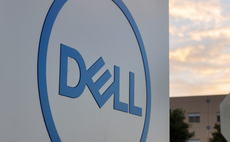Fleur Doidge asks why Dell is calling its mobile thin-client project a path into the portable, personal cloud, and how the vendor believes it can help channel sales
One of the products that attracted the loudest buzz at the annual US Consumer Electronics Show in January was Dell's Project Ophelia. On the face of things, the so-called device looks like just ano...
To continue reading this article...
Join CRN
- Enjoy full access to channelweb.co.uk - the UK’s top news source for the IT channel
- Gain the latest insights through market analysis and interviews with channel leaders
- Stay on top of key trends with the Insider weekly newsletter curated by CRN’s editor
- Be the first to hear about our industry leading events and awards programmes
Already a CRN member?








